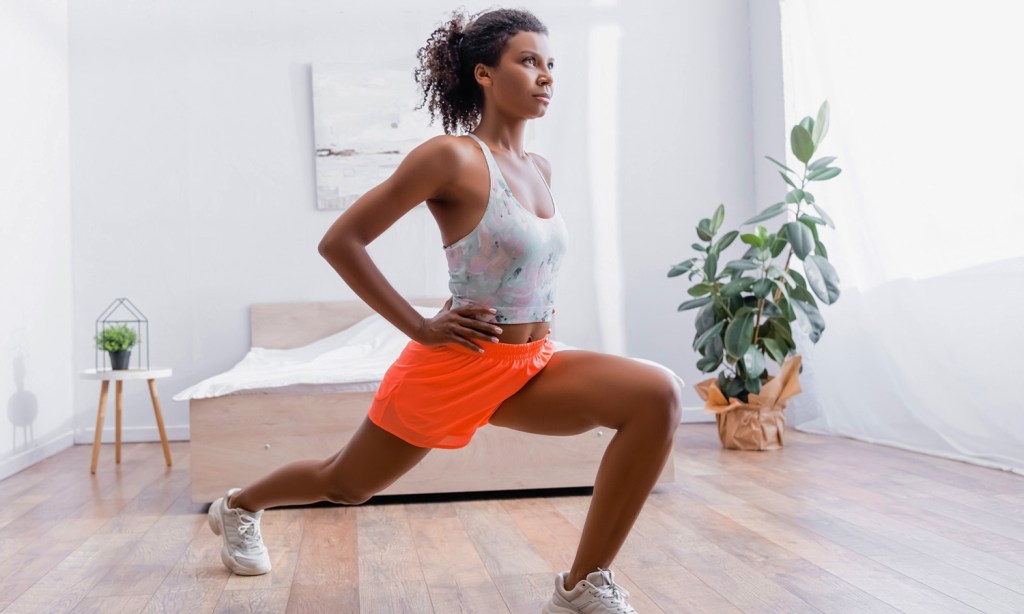
We all know that a more active lifestyle can lead to better health, but exercise is just one aspect of well-being. Diet, sleep, and emotional resilience are all factors in our fitness. Not everyone sees themselves as an athlete, but we can all benefit from these fitness tips from Kinwell Nurse Practitioner Nawaf Alfaouri.
Nutrition
Being more active places more demands on muscles and joints. Meeting your basic nutritional requirements will ensure greater stamina, stronger muscles, and flexible joints.
According to Alfaouri, “Nutrients like calcium, vitamin D, and collagen-building amino acids are especially important for athletes because they directly support bone density and tendon integrity. Calcium works in tandem with vitamin D to strengthen the skeletal system, while adequate protein intake—particularly from collagen-rich sources like bone broth or hydrolyzed supplements—can support tendon elasticity and repair. Without these nutrients, young athletes are more vulnerable to stress fractures and joint instability during periods of rapid growth or high-training volume.
“Protein requirements are significantly higher for athletes. Depending on the sport and training load, athletes may need 1.2 to 2 grams of protein per kilogram of body weight per day to support muscle repair and adaptation. High-quality protein sources distributed evenly throughout the day—including post-exercise—enhance recovery and reduce muscle breakdown.”
Hydration
Water is an often-overlooked performance tool. It is essential to maintain the strength and elasticity of tendons and ligaments.
“Dehydrated tissues are more prone to microtears and chronic strain,” said Alfaouri. “Hydration also supports joint lubrication, thermoregulation, and mental clarity—factors that all influence athletic safety. Pre-hydrating before exercise and consistently replenishing fluids during and after activity are simple but powerful strategies to reduce injury risk and optimize function.”
Warming up
An article in Sports Medicine noted the importance of warming up for both physical and mental benefits. Not only can warming up increase blood flow to muscles, but it can help to focus the mind on the activity ahead. This is especially important for young athletes learning a new sport and those involved in team sports that require precise collaboration.
“Stretching and warming up remain some of the most evidence-based methods for reducing acute injuries,” noted Alfaouri. “A dynamic warm-up prepares the neuromuscular system and enhances proprioception—our body’s sense of position and movement. Likewise, a proper cool-down with static stretching can help minimize soreness and aid in recovery.”
Cardiovascular fitness
Regardless of the activity, whether a walk around the block or long-distance biking, some cardiovascular fitness is essential. Well-conditioned athletes are more likely to sustain performance over time, recover faster, and experience fewer overuse injuries.
“Aerobic capacity supports efficient oxygen delivery to tissues, better lactate (lactic acid) clearance, and stronger cardiac resilience,” said Alfaouri. “Even athletes in predominantly strength-based sports benefit from some level of cardio conditioning to improve endurance and prevent early fatigue, which is often when form breaks down and injury risk spikes.”
Biomechanics
Essentially, there is a right way and a wrong way to move. Repeatedly moving the wrong way can lead to joint damage and injury.
“Whether it’s lifting weights, running, or playing tennis, reinforcing correct technique ensures that force is distributed safely across joints and muscles,” said Alfaouri. “Instruction from trained professionals and regular form checks are crucial, especially during adolescence when growth spurts can alter motor patterns.”
Athletes often push through pain as a sign of dedication. But ignoring the early signs of overuse—like persistent soreness, reduced performance, or mood changes—can lead to chronic injuries and even burnout. Muscles, tendons, and bones all require downtime to rebuild and adapt. A well-structured rest plan, including deload weeks and off-seasons, keeps the body resilient and the athlete mentally engaged.”
Sleep
Sleep may seem to be the exact opposite of exercise, but it is an essential component of any physical activity. It is during sleep that the body and mind rejuvenate and it plays a key role in physical and mental acuity.
“Athletes who sleep less than 7 to 8 hours per night are at increased risk for both physical injury and mental burnout,” notes Alfaouri. “Sleep plays a key role in clearing protein waste from the brain, such as beta-amyloid, which if left unchecked, contributes to cognitive decline. Quality sleep enhances memory consolidation, reaction time, immune strength, and overall mood—making it one of the most accessible forms of performance enhancement.”
Behavioral health
Physical activity requires the ability to focus and be in the moment. Stress, anxiety, and poor mental health can reduce this important emotional resilience.
“Chronic psychological stress leads to elevated cortisol, which interferes with recovery, suppresses immune function, and worsens metabolism,” said Alfaouri. “Learning to manage stress through mindfulness, breathing techniques, and healthy coping strategies is just as important as physical conditioning.”
If you have any questions related to your physical activity goals, consult with a Kinwell clinician. First-time patient can schedule through this website or call 833-411-5469. Current patients can schedule through their MyChart account.
Nawaf Alfaouri, DNP, ARNP, FNP-BC, is a board-certified family nurse practitioner who provides comprehensive primary and lifestyle medicine to patients ages 2 and up. He is dedicated to delivering inclusive, culturally responsive care that addresses the physical, emotional, and social aspects of health.


